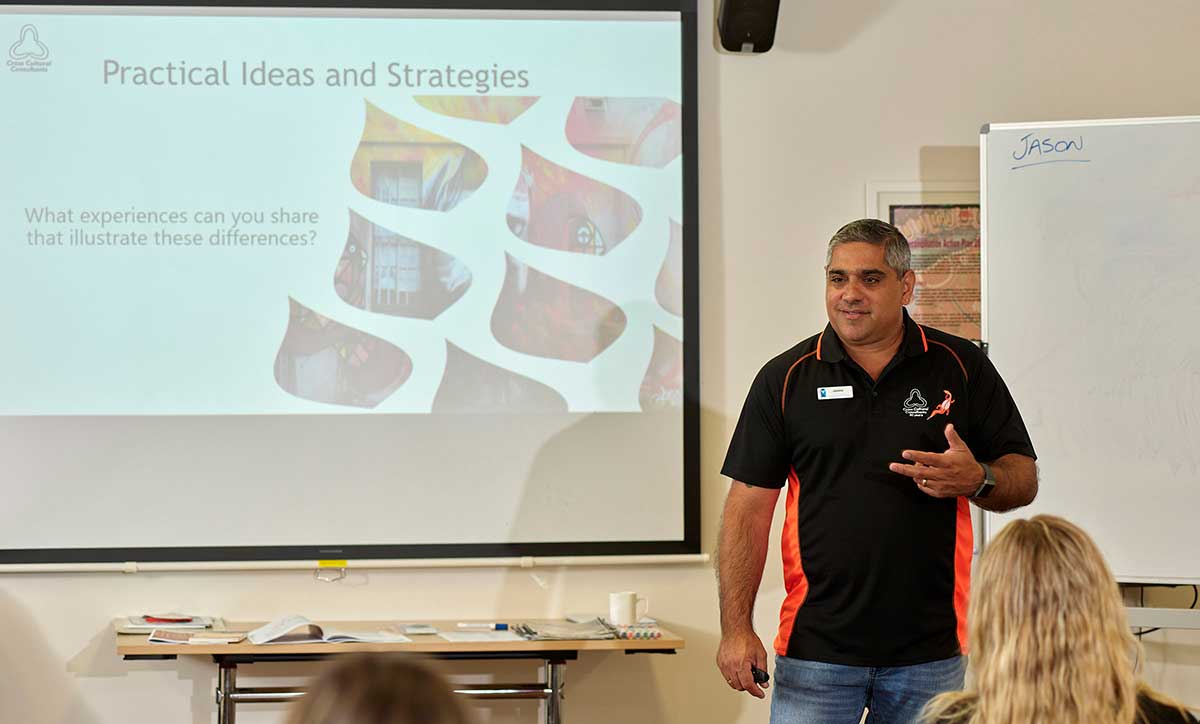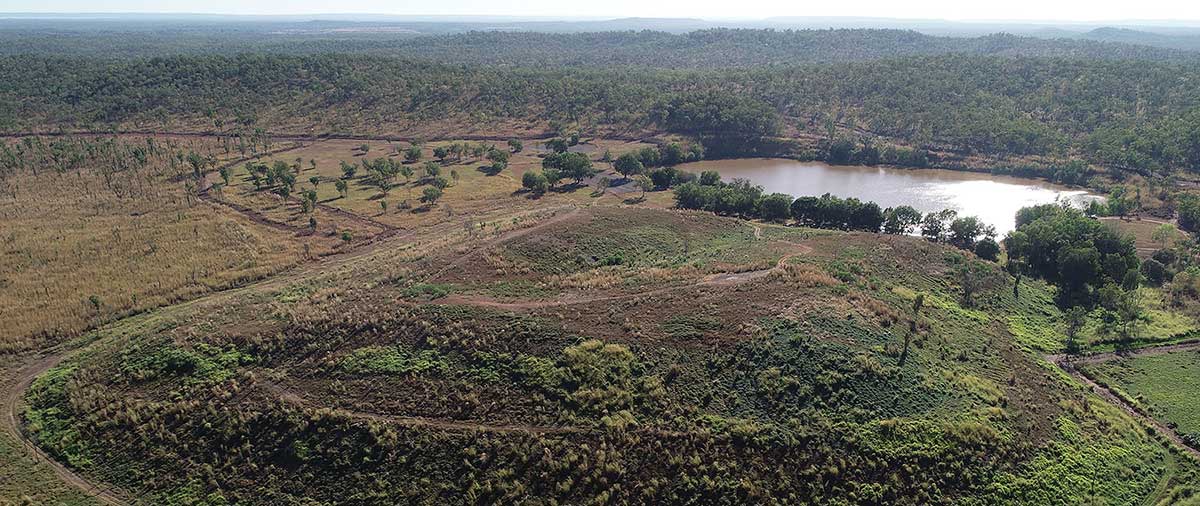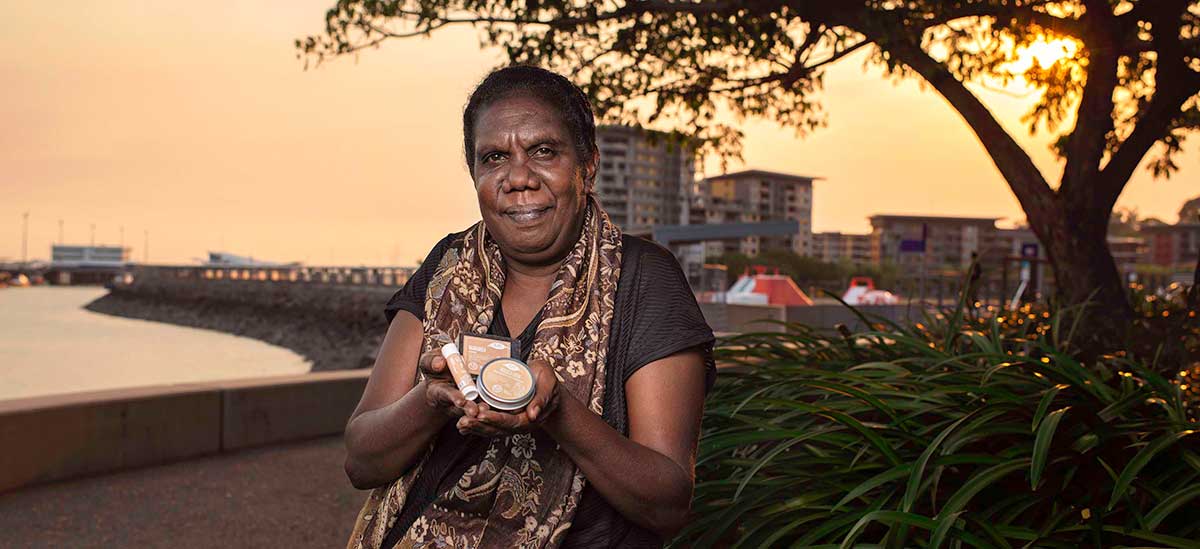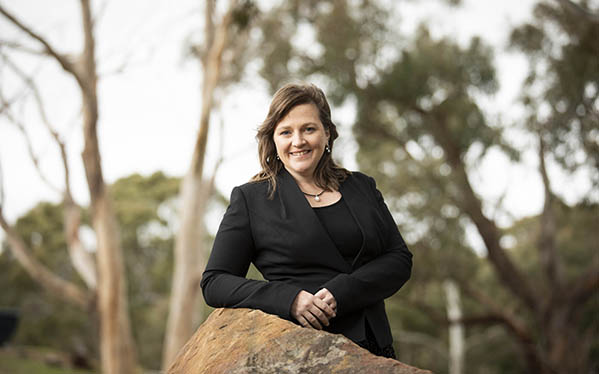Business bulletin: 21 October 2019
Tips on how to maximise business’ year-round appeal at OBM

Caption: David Staughton will share his off-peak sales tips at OBM.
David Staughton knows more than most about how to survive the inevitable ‘quiet times’ in business.
He will share his tips with Territorians during a series of talks at October Business Month (OBM).
“I want business to put an end to seasonality,” he says.
It’s a message that will resonate with Territory business people, who suffer some challenging trading swings because of the wet-dry climate.
David, who has 20 years hands-on experience running business, says the Northern Territory has got off to a good start by renaming the wet the ‘green season’.
He learnt the art of doing well during downturns in trading when he owned a string of wedding venues.
Rather than accept the consensus thinking that the downturns were natural and unavoidable, he decided to do something about it.
Nearly all weddings were booked for weekends - but when he started encouraging Wednesday bookings, he was overwhelmed by the response.
“We ended up taking 40 Wednesday bookings in a year.”
David says cinemas overcome slack times by holding Last Chance Mondays and Cheapskate Tuesdays.
He will also talk about another topic close to every Territory business owner’s heart: how to recruit and retain good staff.
A simple philosophy underlines all his business thinking: love your customer.
The award-winning author retired in 2000 and is now a sought-after motivational speaker - he has spoken at 750 events in 10 countries over the past 12 years.
David will speak in Darwin on Tuesday 29 October, Nhulunbuy on Wednesday 30 October, and Alice Springs on Thursday 31 October.
To book, go to the OBM event booking portal.
Jason details his passion for business at OBM

Caption: Territory Success Story Jason Elsegood will talk about his tips for success in business at OBM.
Jason Elsegood developed his entrepreneurial skills playing marbles with his mates while growing up in the little rural community of Humpty Doo.
“I was pretty good at marbles, and with each game I won my collection grew,” he says.
“Soon I was carrying around a pillowcase full of them.
“While other kids traded marbles, I decided to jump right into sales, and was making a steady profit selling my winnings for 50c a piece.
“The highlight of my marble-selling career was making a premium $1 on a king-size beauty.
“It was the sign of things to come.”
Jason is now the director of Cross Cultural Consultants and co‑director of the IE Project, a Darwin-based Aboriginal employment company providing opportunities to Aboriginal Australians.
He will tell his fascinating story of a life extending from a carefree childhood in Humpty Doo to a nationally‑recognised leader in preparing business owners, public servants and social services workers to operate successfully in Aboriginal communities at an October Business Month (OBM) event in Darwin on 29 October.
Jason believes that there is a critical need for cross cultural training in Australia.
Cross Cultural Consultants was founded by his father Phil in 1986 and Jason joined in 2003.
“I’m not sure my dad could have imagined the little business he started might end up where we are today.
“We have gone from a small home office in Stuart Park to a thriving office base in Yarrawonga. Along the way there have been many changes, embracing new technologies for better record keeping and client management, all the with aim of improving our opportunities for success.
“Business, like a lot of things in life, really comes down to seizing opportunities. My view is that there are three kinds of people in the world: those who make it happen, those who watch it happen, and those who wonder ‘what the hell happened’.
“If I was to give one piece of advice to those starting on their own business journey, or searching for inspiration as they look into the future, I would say this: When opportunity knocks, it’s usually wearing overalls.
“I know it’s a cliché, but what can I say? It’s the truth and it’s always been in the back of my mind. Nobody is ever going to come along and do the hard things for you in life.
“It’s up to you to put in the hours and the effort to achieve your dreams.”
Jason is an OBM Territory Success Story for 2019, and will share his story on 29 October from 5:30pm at DoubleTree by Hilton. To book, go to the OBM event booking portal.
Repairs and maintenance contract starts at Rum Jungle

Caption: Territory company Aldebaran Contracting is working on the cover system at the waste rock dump at the former Rum Jungle mine site.
The Department of Primary Industry and Resources is leading the delivery of the scope of works to progress stage 2A of the Rum Jungle Rehabilitation Project.
As part of the rehabilitation project, repairs and maintenance work will soon commence on the cover system at the waste rock dump at the former Rum Jungle mine site, improving the existing cover system to ensure the site remains stable and non‑polluting.
The project agreement for stage 2A rehabilitation planning was signed by the Northern Territory and Australian governments in September 2017. Under the agreement, $10 million was allocated from the federal budget to the project.
A $1.9 million contract was awarded to Northern Territory company, Aldebaran Contracting to complete the works which include fixing erosion, upgrading drainage structures and reducing the density of weed species, such as gamba, on the cover.
Maintenance works will ensure the long term integrity of the cover system by using clean, compacted material to reshape and recover a part of the dump and repair eroding drainage structures. Upon completion of earthworks the waste rock dump and borrow areas will be revegetated with native flora.
Public access to the site will be closed for the duration of the works. This includes the recreational use of the lake and the immediate area. The site will be reopened for public use upon completion of the maintenance works which is expected to be at the end of the year.
Rum Jungle Creek South was mined for uranium from 1961 to 1963. Waste rock generated from the mining of the pit is stored on site and in the early 1990s a cover system was placed on the waste rock dump.
The Northern Territory Government has been working with the Australian Government and Traditional Owners, the Kungarakan and Warai peoples, since 2009 to develop a preferred rehabilitation strategy for the former Rum Jungle mine site.
For more information on the Rum Jungle project, go to the Department of Primary Industry and Resources website.
Book now to hear inspiring stories at Aboriginal Economic Development Forum

Caption: Serena Bara is proud to be an ambassador at the 9th Aboriginal Economic Development Forum.
Anindilyakwa woman Serena Bara is one of the impressive leaders heading up the all‑female led Bush Medijina program delivered through the Anindilyakwa Services Aboriginal Corporation.
She is also a proud and humble ambassador of the 9th Aboriginal Economic Development Forum that will be held in November this year.
“I am surprised I was asked to be an ambassador. This is a big thing for me”, Serena said.
As part of her role as manager of the Bush Medijina program, Serena works hard to strengthen values, knowledge, culture and community wellbeing in response to social issues on Groote Eylandt, particularly for local women.
Bush Medijina is a growing social enterprise that supports women’s capacity building and wellbeing through its handcrafted skincare range that combines traditional knowledge and botanicals. Established just three‑years ago, the program has gone from strength to strength and is having a lasting positive impact on Anindilyakwa women in Groote Eylandt communities.
Serena’s involvement with Bush Medijina and role as chairperson with the Anindilyakwa Services Aboriginal Corporation has equipped her with a wealth of knowledge that she hopes to share with others at the upcoming forum.
“The Aboriginal Economic Development Forum is a good opportunity for sharing knowledge and interacting with other people,” Serena said.
“Sometimes things work for them and sometimes they don’t. The forum is about sharing experiences and learning from other communities.”
As well as being ambassador, Serena is one of the impressive speakers included in the forum program and will present a breakout session on Bush Medijina alongside her colleague Kerstina Mamarika.
On what she hopes to teach others through the Bush Medijina: Our Story presentation, Serena has one simple message.
“The main thing about Bush Medijina is getting women together and inspiring other women,” Serena said.
Serena has attended a number of Aboriginal economic development specific events and recently travelled to Canada for the World Indigenous Business Forum where she joined an impressive list of Aboriginal leaders from across the world with a shared interest in developing Aboriginal prosperity through economic growth.
The 9th Aboriginal Economic Development Forum will be held on 7 and 8 November at the Darwin Convention Centre.
The two-day program includes a welcome reception, plenary sessions with keynote presentations, breakout sessions and marketplace, showcasing the Territory’s Aboriginal businesses, services and programs.
The forum brings together a diverse range of Aboriginal entrepreneurs, private sector, industry, government and non-government organisations from across the Northern Territory and is an opportunity for key stakeholders to share experiences, network and showcase their products and services with others that can lead to positive commercial outcomes.
The biennial forum is one of Australia’s largest Aboriginal economic development specific events and attracts around 400 delegates and has over 50% Aboriginal delegate participation.
For more information or to register view Aboriginal Economic Development Forum.
Calling outstanding regional women

Caption: Zoe Malone is helping grassroots community groups navigate governance and compliance.
Nominations for the 2020 AgriFutures Rural Women’s Award are now open.
The award is Australia’s leading award in acknowledging and supporting the essential role women play in rural industries, businesses and communities, providing a platform to inspire and support Australian women to use and develop their skills to benefit their industries and communities.
The 2019 winner for the Northern Territory, Zoe Malone proposed a project that would help grassroots community groups navigate the governance and compliance requirements that can be difficult to manage.
Passionate about the role people and communities play in creating strong and vibrant regions, Zoe has spent most of her life living in rural and regional Australia, with over a decade spent in the Northern Territory.
“My personal and professional experiences have led me to recognise that many grassroots community groups struggle to keep up with increasing governance and accountability demands,” Zoe said.
“This leads to more pressure being placed on volunteers, and people being put off getting involved at all.
“My project, the Village Green, will make it easier for volunteers and community groups to navigate their way through compliance and governance demands.”
Each state and territory winner receives a $10,000 bursary from Westpac and continue on to take out the national prize - an additional $10,000 bursary, with $5,000 for the runner-up.
The award is open to all women over the age of 18 involved in rural industries (agriculture, forestry and fisheries), rural and regional businesses and rural and regional communities. No formal qualifications are required and location is no barrier.
Territorian women have until 26 January 2020 to apply. To find out more about the award and how to nominate, go to the AgriFutures website.
The Northern Territory award is coordinated by the Department of Primary Industry and Resources.
New national rules on gift cards

There are important upcoming national changes to laws regarding gift cards in Australia that will affect Territory businesses.
On 1 November 2019, new national rules around gift cards will come into effect, and businesses need to ensure they are ready for them. The new rules fall under the Australian Consumer Law and will affect expiry dates and post‑purchase charges or administration fees. The changes include:
Expiry periods
All gift cards sold in Australia will have a minimum three‑year expiry period, and the expiry date must be clearly displayed on the card or voucher.
If you issue a gift card from 1 November that has an expiry date earlier than three years from the date of issue, the date will be invalid and the consumer will have the legal right to use the gift card within the three‑year period.
Post-supply charges and administration fees
Once you have issued a gift card, you must not charge any post purchase fees that would reduce its value. Some examples include activation, account keeping and balance enquiry fees.
The ban will not cover fees you would normally charge as part of a transaction, such as overseas transaction fees, booking fees, payment surcharges that reflect the costs of using the payment method, or fees charged to replace a lost, stolen or damaged card. Nor will it prevent you from charging an upfront fee when a consumer purchases the gift card from you.
Exceptions
There are some exceptions to the new rules, such as cards sold for a good or service at a genuine discount and cards or vouchers given to customers as part of a limited promotion.
What you need to do before 1 November
- Remove any reference on gift card stock to an expiry period that is less than three years.
- Ensure any new gift card stock you order complies with the new rules.
- Update terms and conditions on your website and any printed material you provide when you promote or sell a gift card.
- Ensure your staff understand the new rules so they can apply them from day one.
For more information on the changes, including a full list of exceptions and how to get your business ready, go to the Australian Consumer Law website or phone the Northern Territory Consumer Affairs on 1800 019 319.

Give feedback about this page.
Share this page:
URL copied!